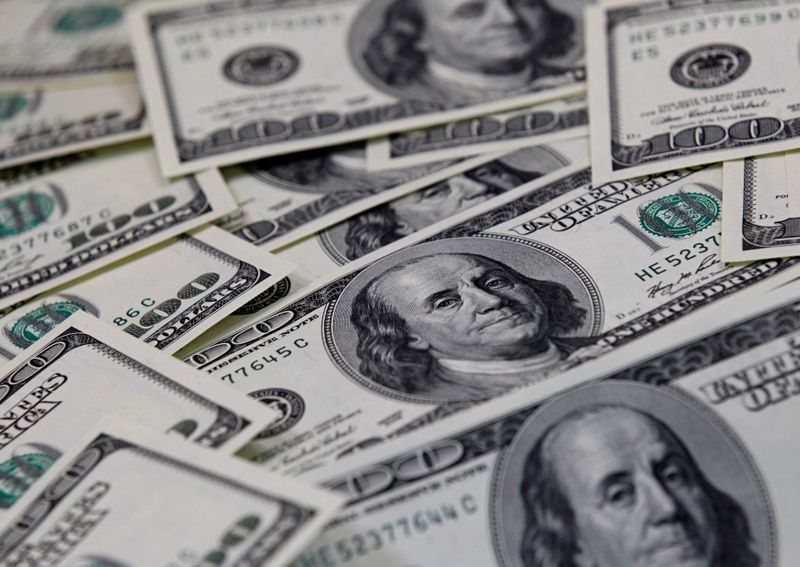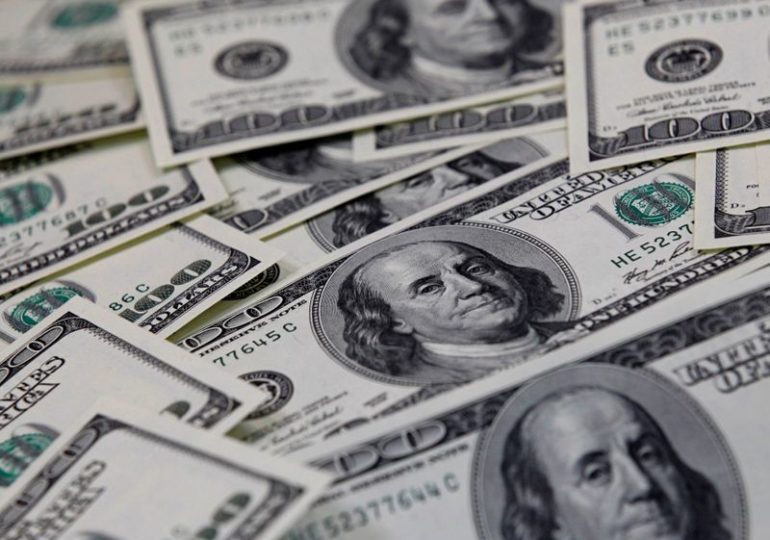 © Reuters. FILE PHOTO: U.S. one hundred dollar notes are seen in this picture illustration
© Reuters. FILE PHOTO: U.S. one hundred dollar notes are seen in this picture illustration
LONDON (Reuters) – The dollar index fell to its lowest in a week early in Thursday's European session and there was a mild "risk on" tone in currency markets, as attention turned to the European Central Bank's policy meeting.
Softer consumer prices data in the United States on Wednesday helped to ease fears about a possible spike in inflation when economies re-open from the COVID-19 pandemic. U.S. Treasury yields declined from their recent spike.
At the European Central Bank meeting, policymakers are expected to send a message that they will prevent bond yields from rising further and harming the bloc's economic outlook.
The bank is expected to signal faster money printing but stop short of adding to its already aggressive policy package.
The ECB's policy decision will be at 1245 GMT, followed by a news conference at 1330 GMT.
Analysts at ING wrote in a note to clients that they do not expect the euro to be the focus of discussion, since it has fallen since the previous meeting. The euro-dollar pair is being more driven by dollar-related factors such as Treasury yields, ING said.
At 0834 GMT, the dollar was down around 0.2% at 91.606 against a basket of currencies, having dropped from the three month high of 92.506 it reached on Tuesday.
The euro was around 0.3% higher against the dollar, at $1.19585. It has fallen 2.1% so far this year.
"If the central bankers signal that they would not only be willing to exhaust their current asset purchasing programme but to even extend it in reaction to a further rise in yields, this might put a dampener on possible rate expectations thus putting pressure on the euro," wrote Commerzbank (DE:CBKG) strategist Thu Lan Nguyen in a note to clients.
"However, I would not expect a significant impact as the market is only expecting rate hikes in the euro zone to occur in the very distant future compared with the U.S. anyway," she said.
Elsewhere, currency markets showed signs of mildly increased risk appetite.
The Australian and New Zealand dollars were up for the third session in a row, both at their highest in a week versus the U.S. dollar, helped by rising commodity prices.
The Norwegian crown was at its strongest in just over one year against the euro, with the pair changing hands at 10.032 at 0818 GMT.
Focus later in the day will be on an auction of 30-year U.S. Treasuries. An auction of 10-year notes on Wednesday drew sufficient demand, helping to allay concerns about investors' ability to absorb an increase in debt needed to finance the response to the pandemic.
"Considering the centrality of Treasury yields in the current market narrative, the auction should be a key driver of risk appetite: another contained reaction in yields (even in the event of a somewhat weak auction) may leave more room for risk stabilization and continue to benefit pro-cyclical currencies while keeping USD pressured," said ING.
The safe-haven Swiss franc dropped against both dollar and euro.
The Japanese yen was down around 0.2% versus the dollar at 108.605.
Also aiding the improved risk appetite was U.S. President Joe Biden's $1.9 trillion COVID-19 relief bill winning final approval in the House of Representatives on Wednesday.
Elsewhere, bitcoin was a touch lower, down around 2.2% on the day at $54,640. The cryptocurrency has recovered some recent losses but not surpassed its all-time high of $58,354.14 which was reached on Feb. 21.
Leave a comment
